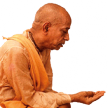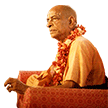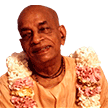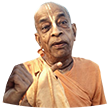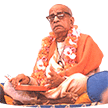Vanaprastha - an essential subject: Difference between revisions
(Created page with "Category:Essential Subjects <!----------------------- edit below this line -----------------------> <!------------------------ begin introduction text below --------------...") |
(Vanibot #0041: Moves Choose Another box to the end) |
||
| Line 2: | Line 2: | ||
<!----------------------- edit below this line -----------------------> | <!----------------------- edit below this line -----------------------> | ||
<!------------------------ begin introduction text below ------------------------> | <!------------------------ begin introduction text below ------------------------> | ||
There are four orders of spiritual life, namely, brahmacarya, gṛhastha, vānaprastha and sannyāsa, and in each of these āśramas there are four divisions. The divisions of the brahmacarya-āśrama are sāvitrya, prājāpatya, brāhma and bṛhat, and the divisions of the gṛhasthāśrama are vārtā (professionals), sañcaya (accumulators), śālīna (those who do not ask anything from anyone) and śiloñchana (those who collect grains from the paddy fields). Similarly, the divisions of the vānaprastha-āśrama are vaikhānasa, vālakhilya, auḍumbara and pheṇapa, and the divisions of sannyāsa are kuṭīcaka, bahūdaka, haṁsa and niṣkriya. | |||
Srila Prabhupada's books, lectures, conversations and letters offer a comprehensive presentation of this essential subject as seen in the Vaniquotes '''[[Vaniquotes:Category: | Srila Prabhupada's books, lectures, conversations and letters offer a comprehensive presentation of this essential subject as seen in the Vaniquotes '''[[Vaniquotes:Category:Vanaprastha|Vanaprastha]]''' category. An introduction from his books is given below in the following 8 quotes. | ||
<!-------- end introduction text and don't touch next three lines ---------> | <!-------- end introduction text and don't touch next three lines ---------> | ||
---- | ---- | ||
== Quotes from Srila Prabhupada's books == | == Quotes from Srila Prabhupada's books == | ||
<!----------------- edit quote boxes below this line -----------------> | <!----------------- edit quote boxes below this line -----------------> | ||
{{VaniQuotebox| | {{VaniQuotebox|A householder is ordered to go to the forest as vanaprastha to acquire complete knowledge and then to take sannyasa prior to his inevitable death|The system of varṇāśrama-dharma prepares a man for going back to Godhead, and thus a householder is ordered to go to the forest as vānaprastha to acquire complete knowledge and then to take sannyāsa prior to his inevitable death. Parīkṣit Mahārāja was fortunate to get a seven-day notice to meet his inevitable death. But for the common man there is no definite notice, although death is inevitable for all. '''(Śrīmad-Bhāgavatam 1.19.4)'''}} | ||
{{VaniQuotebox| | {{VaniQuotebox|A householder, after fifty years of age, would retire from the association of woman as a vanaprastha to be trained to live alone without the association of woman|The householder who associates with woman under scriptural restrictions, after a thorough training of brahmacarya, cannot be a householder like cats and dogs. Such a householder, after fifty years of age, would retire from the association of woman as a vānaprastha to be trained to live alone without the association of woman. When the practice is complete, the same retired householder becomes a sannyāsī, strictly separate from woman, even from his married wife. '''(Śrīmad-Bhāgavatam 2.7.6)'''}} | ||
{{VaniQuotebox| | {{VaniQuotebox|According to Vedic civilization, this giving up of home by vanaprastha and sannyasa is compulsory. But people are so attached to their homes that even up to the point of death they do not like to retire from home life|According to Vedic civilization, this giving up of home by vānaprastha and sannyāsa is compulsory. But people are so attached to their homes that even up to the point of death they do not like to retire from home life. King Aṅga, therefore, thinking in terms of detachment, accepted his bad son as a good impetus for detachment from home life. He therefore considered his bad son his friend since he was helping him become detached from his home. '''(Śrīmad-Bhāgavatam 4.13.46)'''}} | ||
{{VaniQuotebox| | {{VaniQuotebox|Although one is situated as a brahmana, ksatriya, vaisya, sudra, brahmacari, vanaprastha, grhastha or sannyasi, if he is conversant in the science of Krsna he can become a spiritual master as vartma-pradarsaka-guru, diksa-guru or siksa-guru|Śrīla Bhaktisiddhānta Sarasvatī Ṭhākura also states that although one is situated as a brāhmaṇa, kṣatriya, vaiśya, śūdra, brahmacārī, vānaprastha, gṛhastha or sannyāsī, if he is conversant in the science of Kṛṣṇa he can become a spiritual master as vartma-pradarśaka-guru, dīkṣā-guru or śikṣā-guru. The spiritual master who first gives information about spiritual life is called the vartma-pradarśaka-guru, the spiritual master who initiates according to the regulations of the śāstras is called the dīkṣā-guru, and the spiritual master who gives instructions for elevation is called the śikṣā-guru. '''(Caitanya-caritāmṛta, Madhya-līlā 8.128)'''}} | ||
{{VaniQuotebox| | {{VaniQuotebox|As a king in a strong fortress can conquer powerful enemies, so a householder in grhastha-asrama, household life, can conquer the lusty desires of youth and be very secure when he takes vanaprastha and sannyasa|The senses are considered very powerful enemies. As a king in a strong fortress can conquer powerful enemies, so a householder in gṛhastha-āśrama, household life, can conquer the lusty desires of youth and be very secure when he takes vānaprastha and sannyāsa. '''(Śrīmad-Bhāgavatam 5.1.18)'''}} | ||
{{VaniQuotebox| | {{VaniQuotebox|As far as the brahminical quality of simplicity is concerned, not only should a particular order of life follow this principle, but every member of each asrama. One should be very simple and straightforward|As far as the brahminical quality of simplicity is concerned, not only should a particular order of life follow this principle, but every member, be he in the brahmacārī āśrama, gṛhastha āśrama, vānaprastha āśrama or sannyāsa āśrama. One should be very simple and straightforward. Ahiṁsā means not arresting the progressive life of any living entity. One should not think that since the spirit spark is never killed even after the killing of the body there is no harm in killing animals for sense gratification. '''(Bhagavad-gītā 16.1-3)'''}} | ||
{{VaniQuotebox| | {{VaniQuotebox|As for those who are not grhasthas - the brahmacaris, vanaprasthas and sannyasis - they don't have to do anything but strive for advancement in spiritual life. This means that three fourths of the entire population should stop sense gratification|One's means of livelihood should be extremely simple. As for those who are not gṛhasthas—the brahmacārīs, vānaprasthas and sannyāsīs—they don't have to do anything but strive for advancement in spiritual life. This means that three fourths of the entire population should stop sense gratification and simply be engaged in the advancement of Kṛṣṇa consciousness. Only one fourth of the population should be gṛhastha, and that should be according to laws of restricted sense gratification. '''(Śrīmad-Bhāgavatam 7.14.10)'''}} | ||
{{VaniQuotebox| | {{VaniQuotebox|At that time (when the husband retires from family life, goes to the forest and adopts the life of vanaprastha) the wife is to follow her husband and take care of him, just as she took care of him in householder life|The chaste wife's duty is to keep her husband pleased in householder life in all respects, and when the husband retires from family life, she is to go to the forest and adopt the life of vānaprastha, or vana-vāsī. At that time the wife is to follow her husband and take care of him, just as she took care of him in householder life. But when the husband takes the renounced order of life, namely sannyāsa, the wife is to return home and become a saintly woman, setting an example for her children and daughters-in-law and showing them how to live a life of austerity. '''(Śrīmad-Bhāgavatam 4.23.20)'''}} | ||
<!----------------- edit quote boxes above this line -----------------> | <!----------------- edit quote boxes above this line -----------------> | ||
''' | '''Vanaprastha - [[Vaniquotes:Category:Vanaprastha|explore more within this category]]'''. | ||
{{EsentialSubjectTotal}} | {{EsentialSubjectTotal}} | ||
<div style="float:left;"> | |||
{{EssentialSubjectnav}} | |||
</div> | |||
__NOTOC__ | __NOTOC__ | ||
__NOEDITSECTION__ | __NOEDITSECTION__ | ||
Latest revision as of 18:05, 22 November 2020
There are four orders of spiritual life, namely, brahmacarya, gṛhastha, vānaprastha and sannyāsa, and in each of these āśramas there are four divisions. The divisions of the brahmacarya-āśrama are sāvitrya, prājāpatya, brāhma and bṛhat, and the divisions of the gṛhasthāśrama are vārtā (professionals), sañcaya (accumulators), śālīna (those who do not ask anything from anyone) and śiloñchana (those who collect grains from the paddy fields). Similarly, the divisions of the vānaprastha-āśrama are vaikhānasa, vālakhilya, auḍumbara and pheṇapa, and the divisions of sannyāsa are kuṭīcaka, bahūdaka, haṁsa and niṣkriya.
Srila Prabhupada's books, lectures, conversations and letters offer a comprehensive presentation of this essential subject as seen in the Vaniquotes Vanaprastha category. An introduction from his books is given below in the following 8 quotes.
Quotes from Srila Prabhupada's books
Vanaprastha - explore more within this category.
Vanipedia has now over 903 introductory articles compiled from Srila Prabhupada's books under the series titled Essential Subjects. All these articles can be seen in the Table of Content on the right side of this article and also here in this Umbrella Category. Browse through them to relish the breadth and depth of Srila Prabhupada's teachings - There is a subject for everyone.
